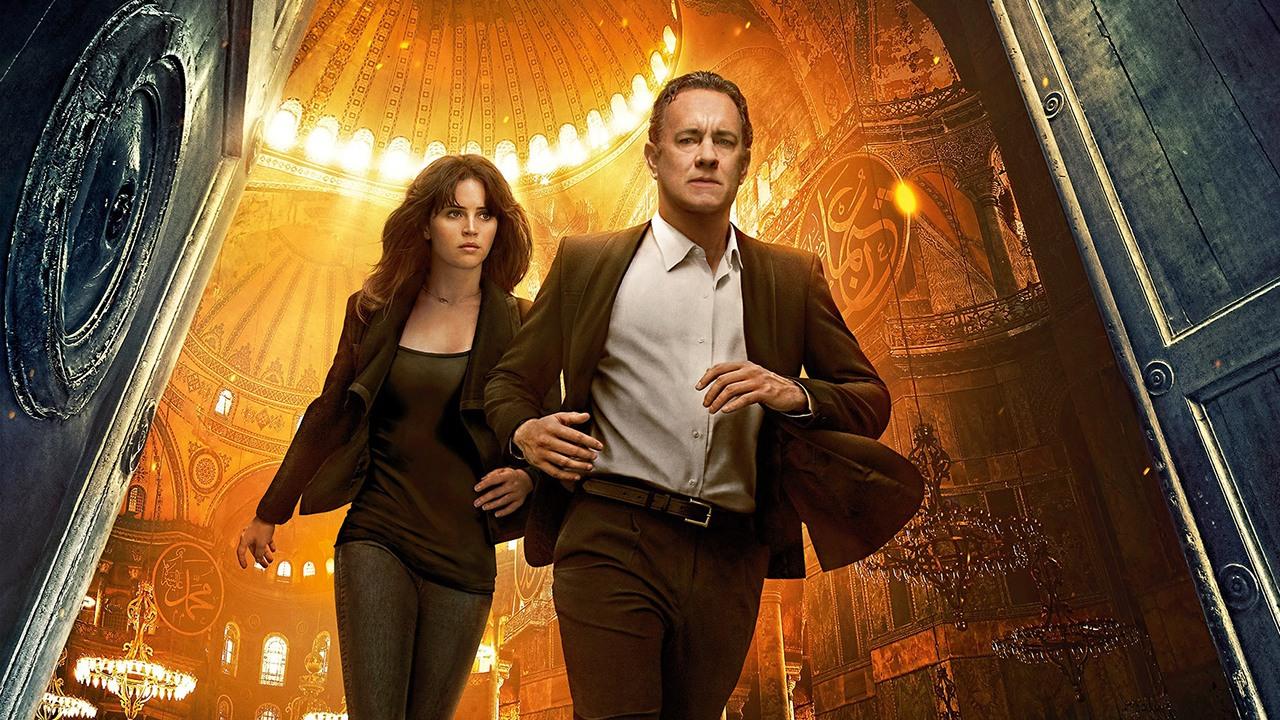[poll id=”4″]After committing papal heresy in ‘The Da Vinci Code’ and ‘Angels and Demons’, renowned Harvard University symbiologist Robert Langdon is in arguably less controversial territory with ‘Inferno’, which sees him pitted against a crazed billionaire geneticist who has invented the titular doomsday virus to wipe out half of the world’s population. To be sure, Langdon will not come face to face with the madman named Bertrand Zobrist (Ben Foster) – not only does a pre- credits sequence establish Zobrist’s obsession with humanity’s imminent demise through overpopulation, it also shows the man pursued along the streets of Florence, Italy, and finally throwing himself off a bell tower. Instead, Langdon finds himself plunged into the world of 14th century Italian poet Dante Alighieri’s ‘The Divine Comedy’ with a series of apocalyptic visions that accompany his apparent head trauma from a gunshot wound, which also causes him to suffer from mild retrograde amnesia.
Or so his doe-eyed helpmeet doctor Sienna Brooks (Felicity Jones) claims, who after saving him from a female carabineri Vayentha (Ana Ularu) in hospital, seems all too willing to be his sidekick sleuth in uncovering a series of clues that will lead them to the virus, beginning with a ‘Faraday pointer’ containing an altered image of Botticelli’s ‘Map of Hell’ illustration. The trail will lead them across exotic locations in Florence – from the Boboli Gardens to the Palazzo Vecchio to the Florence Baptistry – and Venice before finally culminating in Istanbul’s Hagia Sofia. To make things more exciting of course, Langdon finds himself the target of multiple competing parties, including the World Health Organization director- general Elizabeth Sinskey (Sidse Babett Knudsen), her possibly rogue gang of heavily-armed operatives led by Christoph (Omar Sy), and last but not least the ace fixer Harry Sims (Irrfan Khan) of a shadowy consortium.
As much as the chase does lend itself to some big-screen cinematic thrills, Dan Brown’s Langdon series were probably more suited for the page, seeing as how lengthy chunks of exposition were devoted to educating its readers on the myriad historical references that served as an intricate web of clues for its protagonist. To screenwriter David Koepp’s (returning from 2009’s ‘Angels and Demons) credit, he has effectively streamlined Brown’s novel into an effective race-against-time mystery thriller that stays true to the essence of its source. Fans of the book will no doubt draw their comparisons (and let’s just say that there are some significant deviations, most prominently the bleak ending which probably would come across too nihilistic for a mainstream audience), but the distillation – complete with reversals, flashbacks and a midway twist – has enabled Ron Howard (who also directed the earlier two adaptations) to produce his most pacey instalment yet of the three- quel.
Oh yes, ‘Inferno’ is probably the least faithful of them, though arguably for the better. Unlike the plodding ‘Da Vinci Code’, the first hour moves at an almost breathless pace as Langdon and Sienna go from gallery to gallery tracing Zobrist’s steps as well as figuring out the allegiance of the assorted figures that seem bent on acquiring the virus. Howard also injects a stronger stylistic audacity to ‘Inferno’ than his 2006 and 2009 predecessors, in particular in his imagining of the hellish visions that Langdon is plagued with – that of white- eyed lepers kneeling by the roads, sorcerers with their heads twisted around, and streets covered in rivers of blood. Perhaps the only time his film comes up for air is just before the explosive finale set in a red subterranean Turkish bath, with a romantic subplot between Langdon and Sinskey expertly played by two accomplished actors for all that it is worth. Howard also gives some room for the consortium’s enigmatic Provost to impress with his wryness and spryness in the latter half, which Khan reciprocates with a ripe but fun performance.
Because ‘Inferno’ was never made or meant to be character-driven, it rests squarely yet again on Hanks’ shoulders to make his character appealing. Indeed, Langdon was never an immediately likable person; in fact, his self-aware intellect quite often turns into self- absorbed pomposity. Yet the ultra-genial Hanks downplays these characteristics for a down-to-earth, sometimes even self- deprecating, portrayal that makes Langdon amiable companion over the film’s two hours. Truth be told, the popularity of Dan Brown’s super-tourist semiology thrillers with their initially refreshing high-minded emphasis on art and culture has somewhat faded in the decade since, but ‘Inferno’ is still a sufficiently exciting mystery thriller in its own right, thanks to Howard’s sure-handed direction and Hanks’ ever-reliable presence. If, as its tagline suggests, ‘The Da Vinci Code’ and ‘Angels and Demons’ were just the beginning, then you’d be glad to know that this third Ron Howard adaptation of the Dan Brown series is certainly bigger and better.



